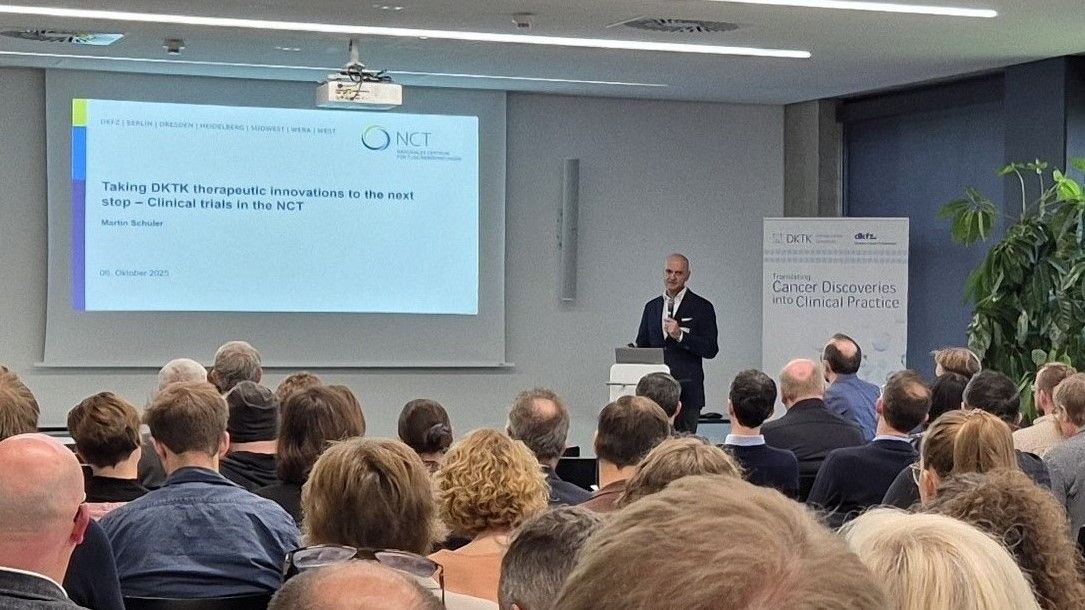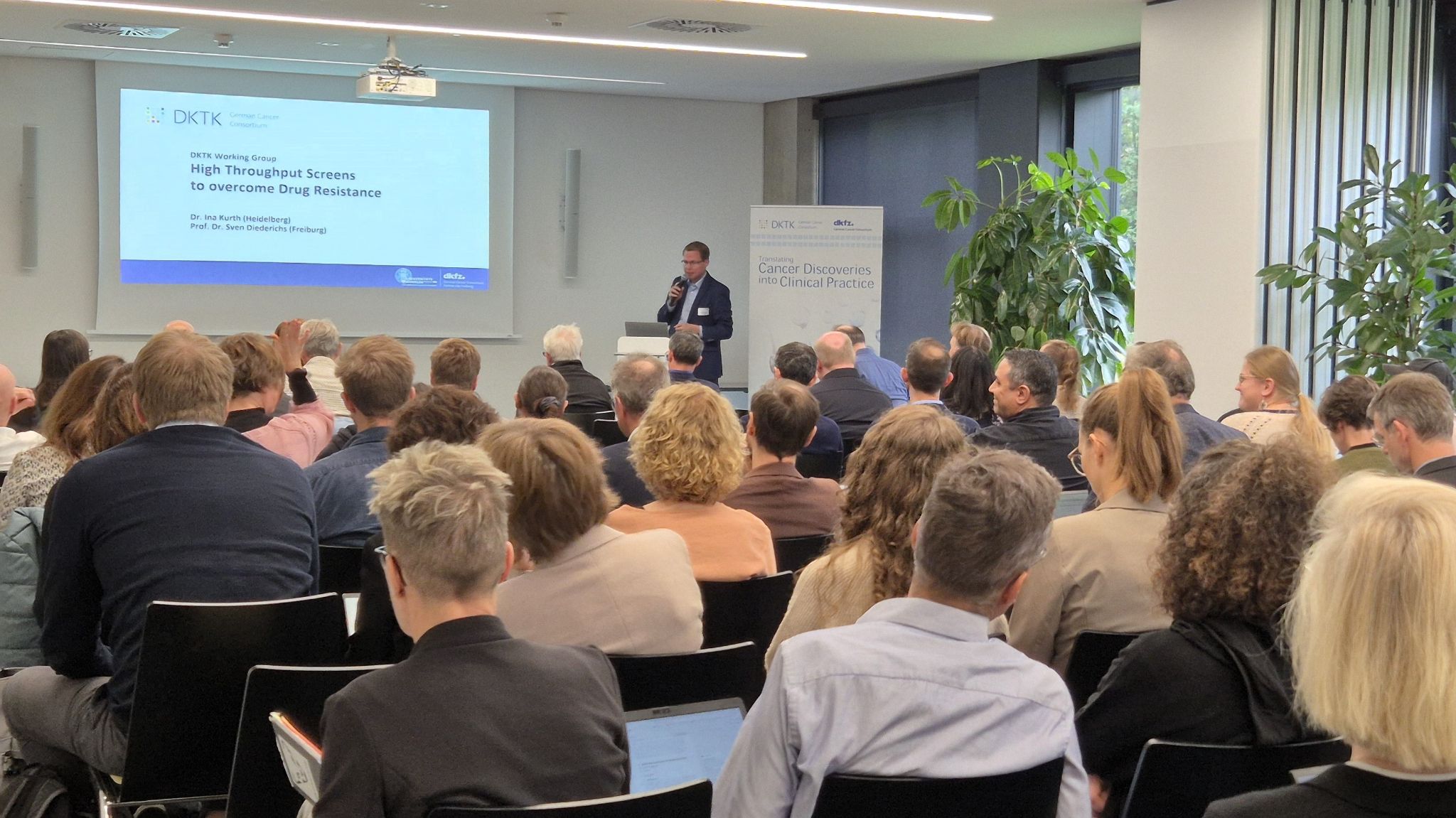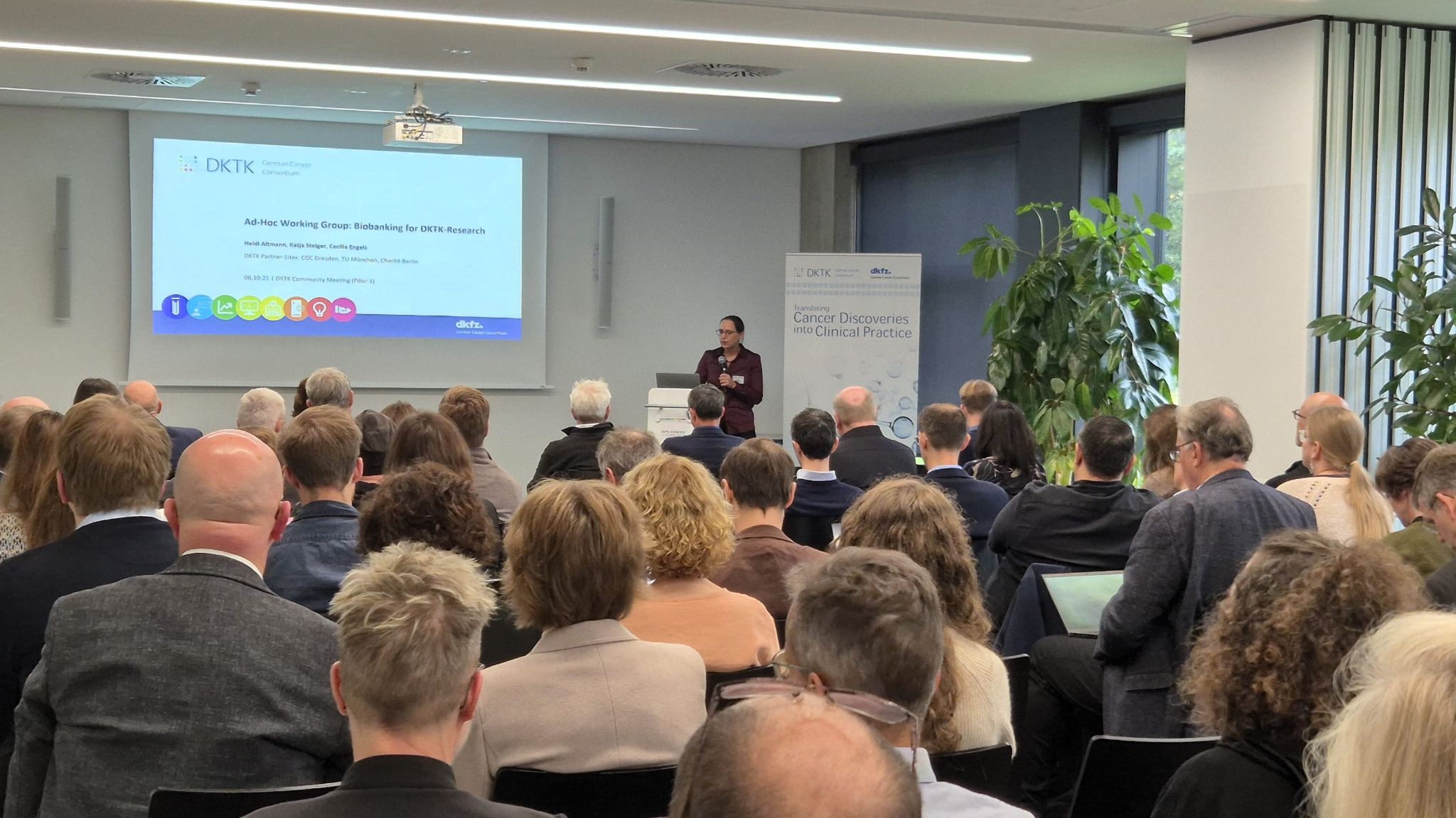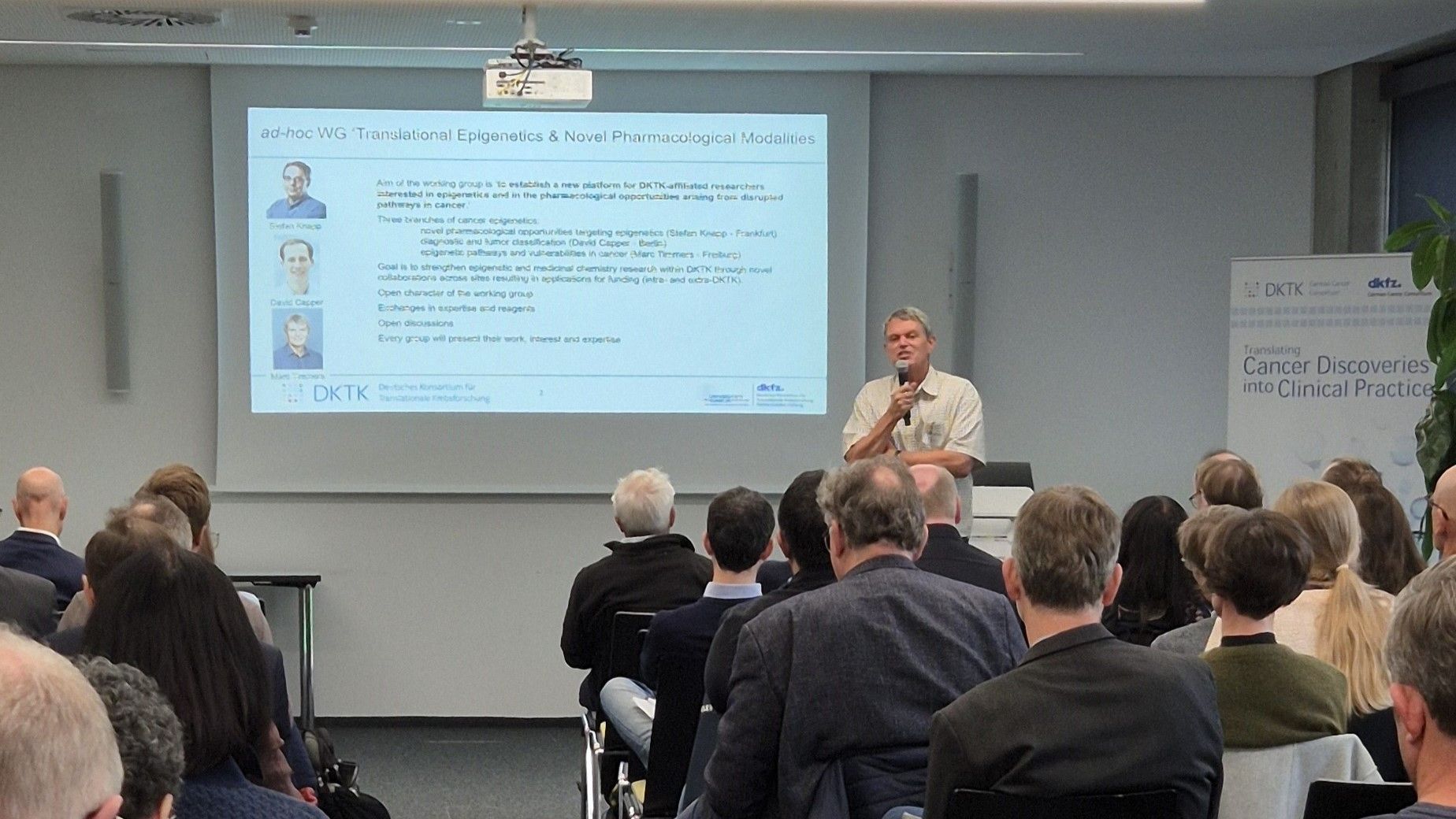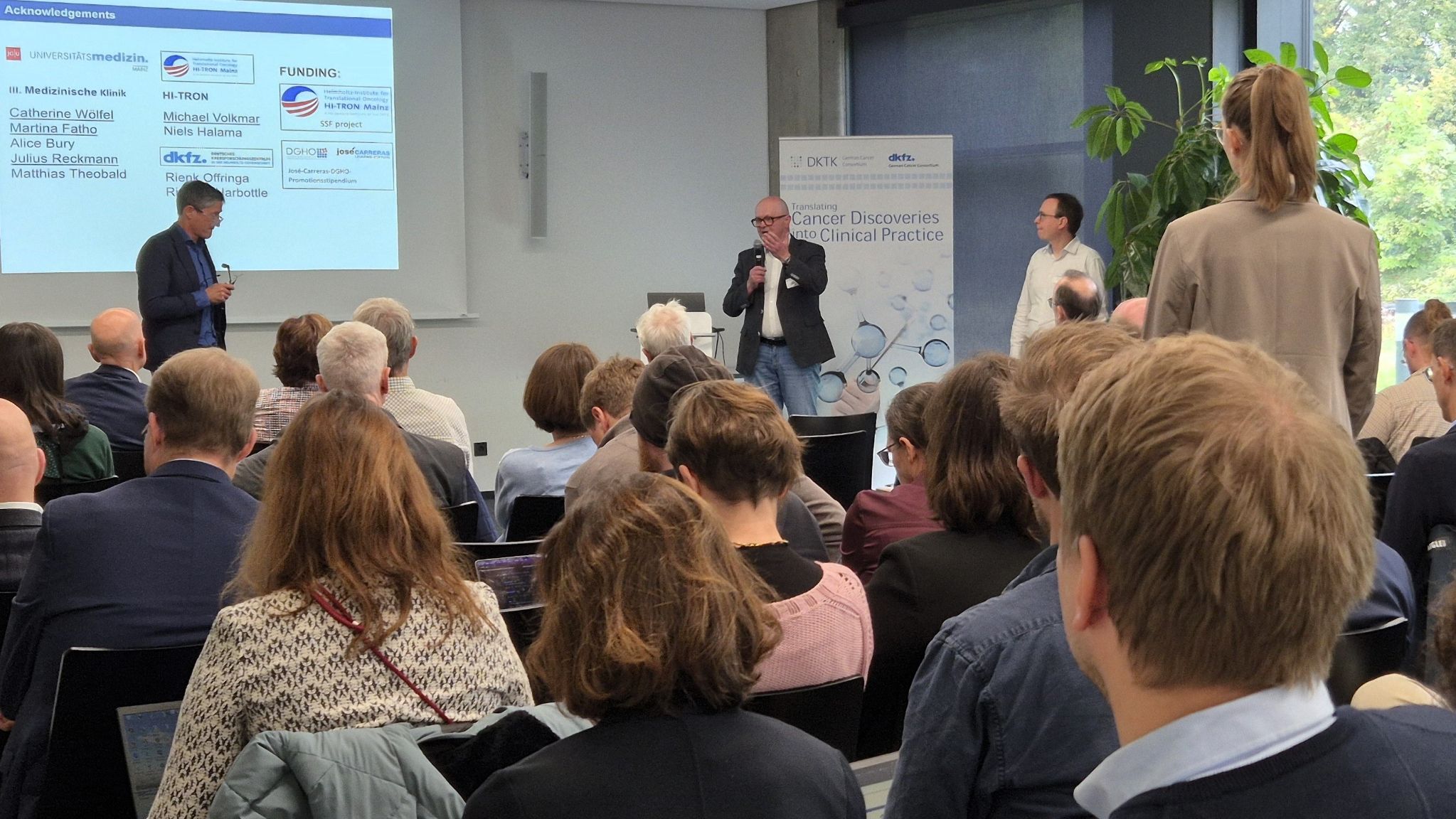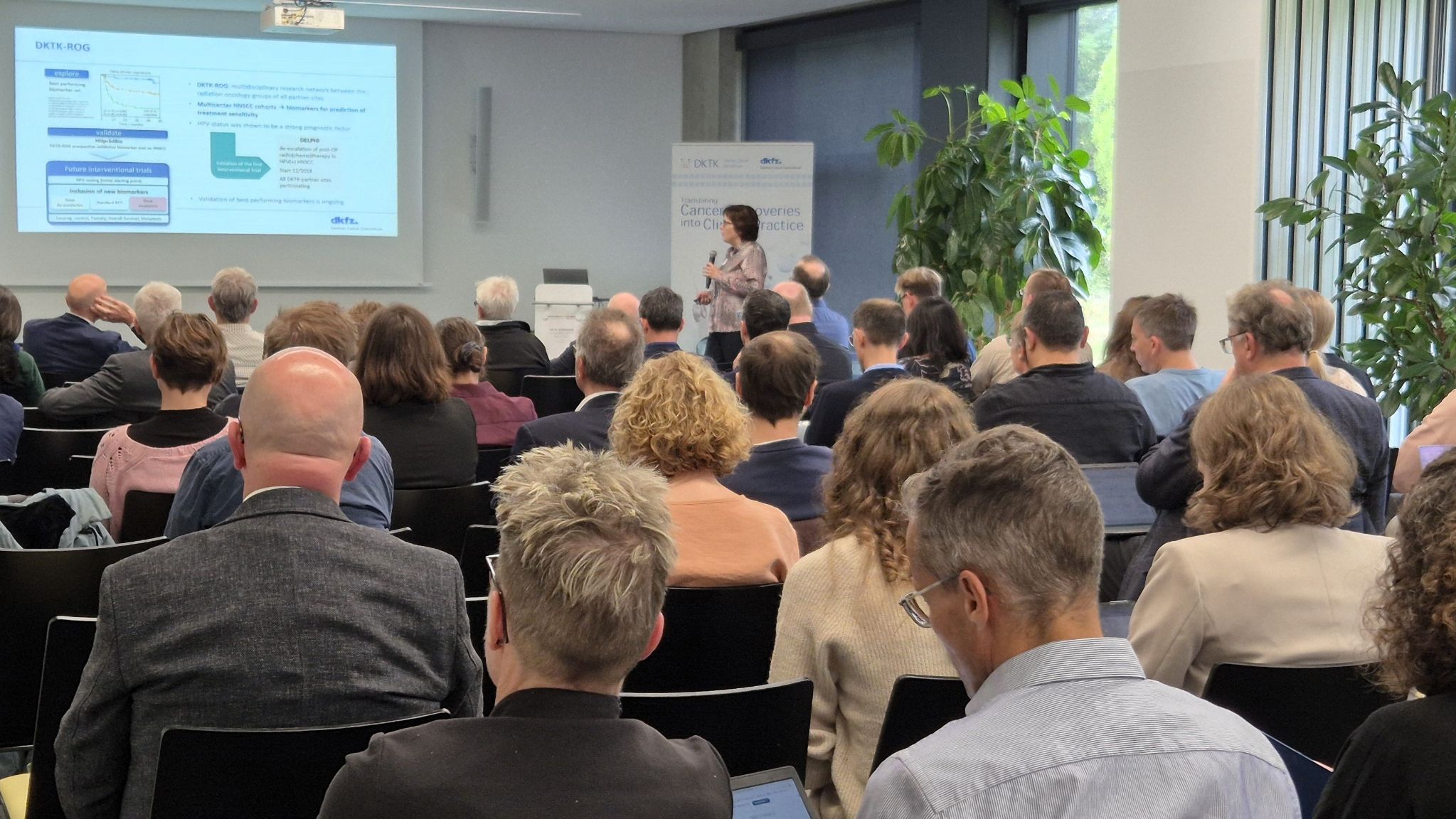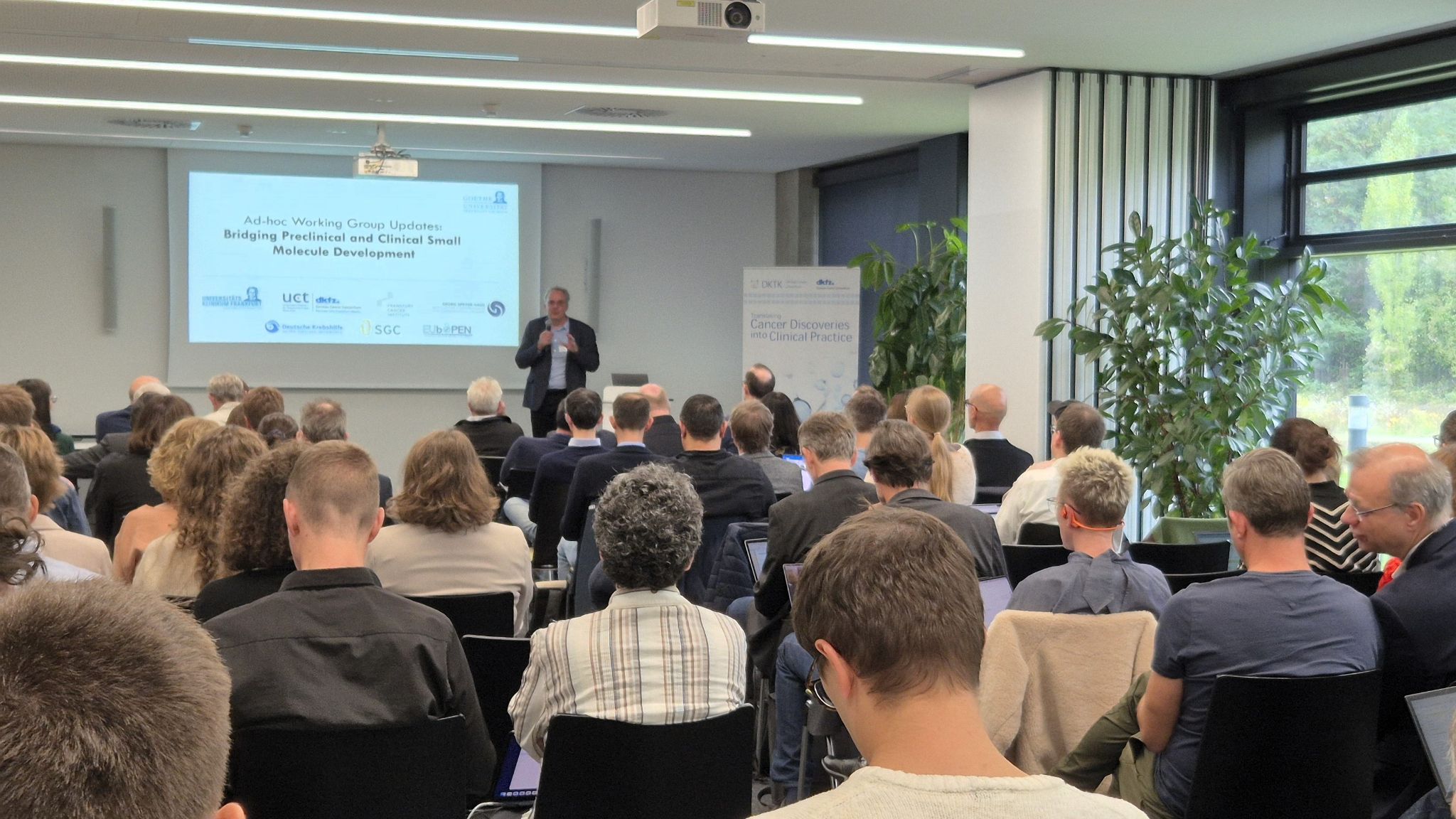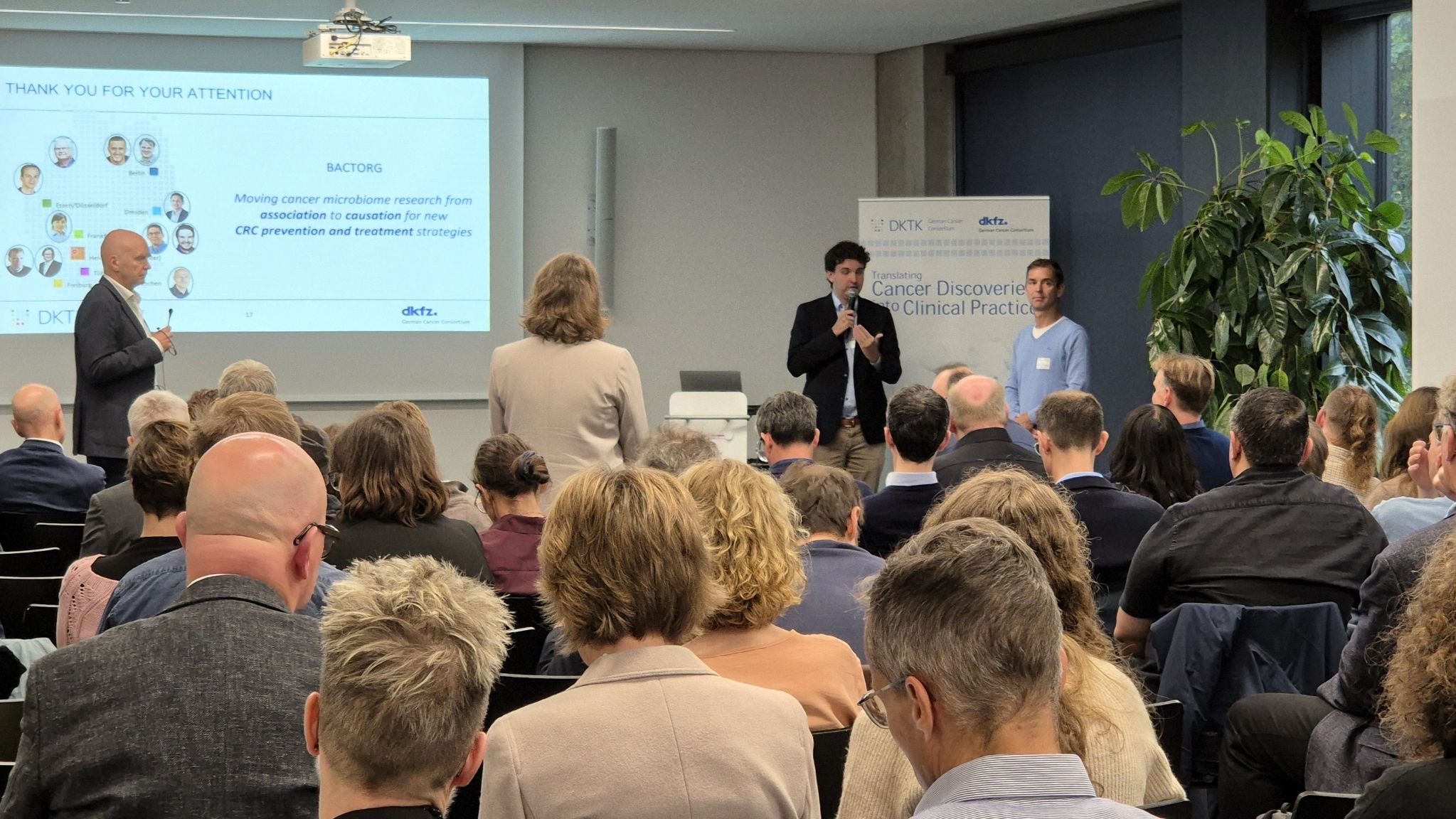17/10/2025
Print PageDKTK Scientific Community Meeting 2025: Strengthening Collaboration
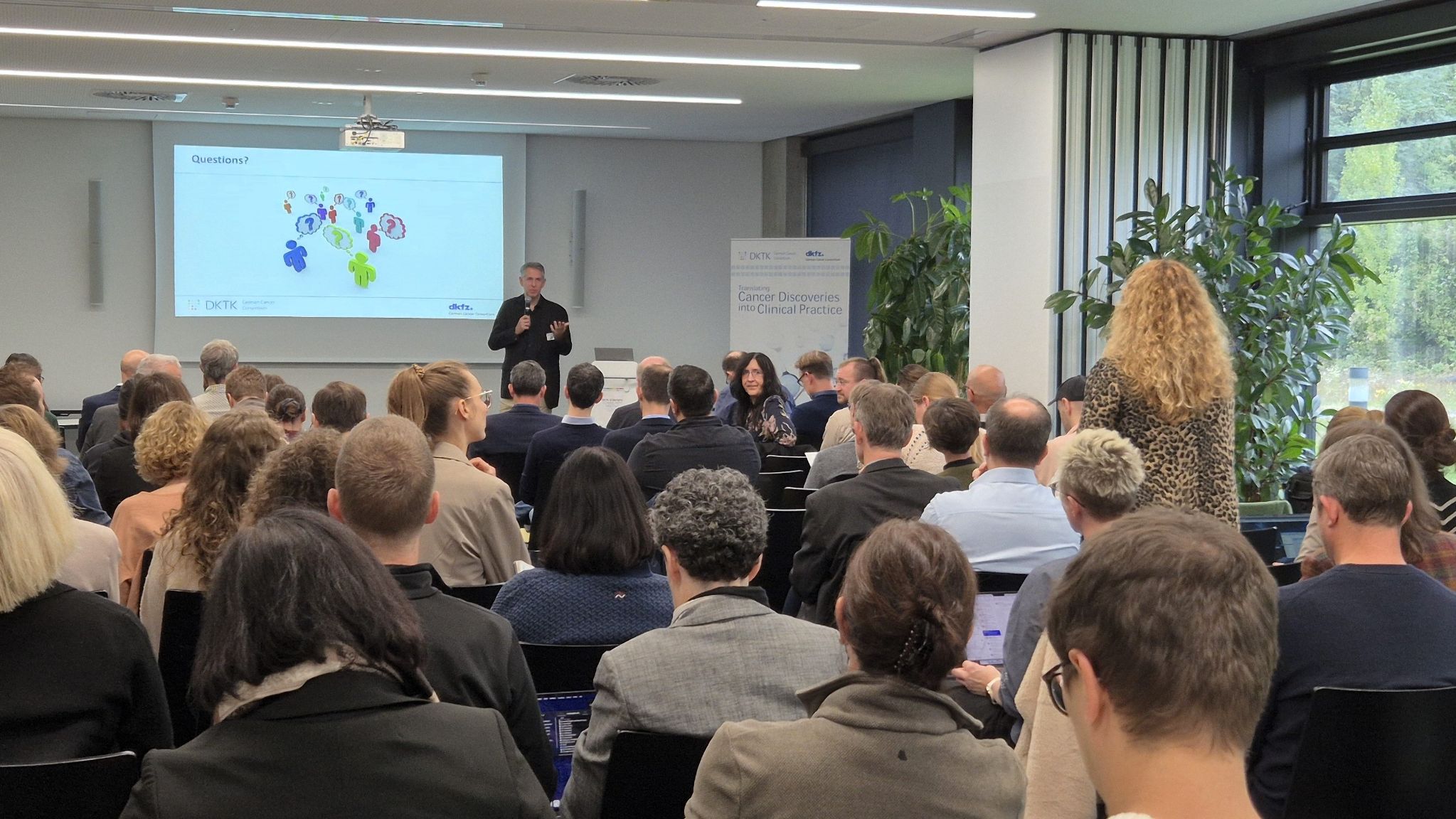
The meeting was opened by Prof. Stefan Pfister, Director of the Hopp Children's Cancer Center Heidelberg (KiTZ), designated DKTK Spokesperson and Head of the Division of Pediatric Neurooncology at the German Cancer Research Center (DKFZ). In his welcome address, he outlined DKTK’s ongoing mission to strengthen collaborative trial-enabling projects and activities and its growing interaction with the National Center for Tumor Diseases (NCT).
Stefan Pfister introduced the meeting’s focus on the currently active Ad-hoc Working Groups (WGs) of DKTK’s “Pillar 1” − Therapeutic Innovations: trial-enabling projects and activities − which brings together scientists with shared research interests. These bottom-up groups typically foster cross-site collaboration and can even be used to conceptualize new DKTK Joint Funding projects. Researchers are invited to join existing WGs or establish new ones through the open registration platform: indico.dkfz.de/event/1345/.He provided updates on latest DKTK activities, including the transition of the Clinical Communication Platform (CCP) into the DKTK BioDataHub (BDH) to ensure sustainable data management and interoperability. Stefan Pfister also reported on the success of the GeneNovate Entrepreneurship Training program in the area of gene and cell therapies this year. In addition, he highlighted upcoming events and initiatives such as the Science Meets Industry Day in collaboration with DKFZ and the German Association of Research-Based Pharmaceutical Companies (vfa), and the launch of DKTK Ambassadors, a program designed to inspire young people through classroom and university outreach.
Translating Therapeutic Innovation: Clinical Trials in the NCT
Prof. Martin Schuler, Spokesperson for the NCT West: Cologne / Essen, presented on advancing DKTK-driven therapeutic innovations through clinical trials within the NCT network. He emphasized the need to address the bottleneck of early investigator-initiated trials (IITs) in Germany and highlighted the vision of the unified “One NCT” approach, aligning the six NCT sites to accelerate translation from preclinical discoveries via patient studies.
Spotlight on Ad-hoc Working Groups
Throughout the day, scientists of several WGs presented updates and spotlight projects, showcasing the diversity and collaborative strength of the DKTK community:
- High-Throughput Screening to Overcome Therapy Resistance (Chairs: I. Kurth, S. Diederichs) – focus on pooling and sharing expertise in high-throughput screening and drug resistance across the DKTK network
- Biobanking for DKTK Research (Chairs: H. Altmann, C. Engels, K. Steiger) – standardization of communication and improvement of visibility and availability of biobanking resources across all DKTK partner sites
- Translational Epigenetics and Novel Pharmacological Modalities (Chairs: D. Capper, S. Knapp, M. Timmers) – highlighting a successful spotlight project on developing TAF1-PROTACs via combinatorial click-chemistry, that originated at last year’s meeting and has already yielded promising compounds (M. Timmers)
- Personalized Approaches for Immunotherapies (Chairs: M. Bornhäuser, M. Klatt) – work on tolerance mechanisms and industry involvement, featuring a spotlight project on HLA-independent T-cell receptors against uPAR (T. Wölfel)
- Functional Precision Oncology & Organoids and 3D Models in Oncology (Chairs: C. Ball, S. Knapp, H. Farin, M. Reichert, D. Stange, M. Wobus) – joint discussions with focus on translating organoid-based discoveries into clinical studies
- Radio Oncology (Chairs: M. Krause) – updates from DKTK’s established platform RadPlanBio and the Radiation Oncology Group (DKTK-ROG)
- Bridging Preclinical and Clinical Small Molecule Development (Chair: S. Knapp) – explored strategies for academic drug development, addressing fragmentation, spin-off models, and the importance of “fee-for-service” structures
- Harnessing the Microbiome for Cancer Prevention and Therapy (Chairs: D. Saur, C. Stein-Thöringer) – the BACTORG consortium as a spotlight project investigating functional roles of bacterial in colorectal cancer (J. Puschhof)
Engaged Discussion and Future Directions
In the final discussion, participants praised the bottom-up dynamic of the WGs and their potential to generate ideas for innovative translational projects. Panelists including Prof. Stefan Pfister, Prof. Michael von Bergwelt, Prof. Martin Schuler, Prof. Stephan Knapp, and others emphasized the importance of sustained collaboration, risk-taking, and structural support for academic innovation. “The new structure is alive and functioning well − feedback is welcome to make it even stronger,” Stefan Pfister noted. The meeting concluded with a forward-looking message: DKTK will continue to evolve its structures and partnerships to accelerate translational cancer research across Germany.
